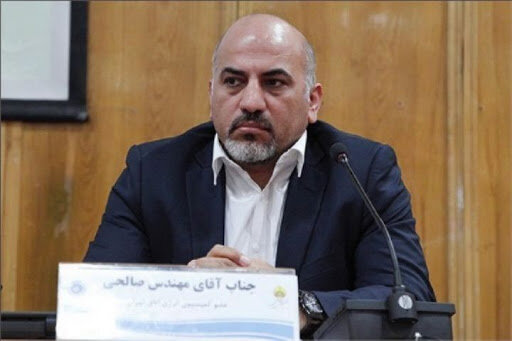
Privatization should spur productivity, not just collect capital: expert

The announcement comes as the government is following a new strategy for listing most of its companies and assets on the stock exchange aiming to accelerate a privatization program which was started years ago but hasn’t reached its goals.
The privatization program was started as a movement aiming for downsizing the government and promoting the private sector’s role in the national economy, however, many economic experts and analysts believe that the government’s current hasty move for offering its assets on the capital market is mainly aimed to offset the budget deficit which is inevitable due to the low oil prices, coronavirus pandemic and unjust U.S. sanctions.
In this regard, the Tehran Times conducted an interview with Economic and Energy Expert Hamidreza Salehi, who is the Head of Iran Chamber of Commerce, Industries, Mines and Agriculture (ICCIMA)’s Energy Committee:
Deviation from the privatization nature
Asked about the above-mentioned issue and the extent to which the government’s privatization plan is moving towards its main goal which is downsizing the government and empowering the private sector, Salehi said the current listing of the state-owned companies on the stock exchange is not ensuring any role for the “private sector” in the management of the listed companies, thus it cannot be called privatization.
“The government offers the shares of its companies to be bought by thousands of shareholders that are mostly ordinary people and not experts, and as a result, the management of the mentioned companies is still completely in the hands of the government and, in reality, only some shares have been sold to raise funding for the government,” he explained.
“Real privatization is handing over the management of a government-owned company or institution to capable and competent real or legal persons in the private sector to increase productivity, investment making, job creation, promotion of trade balance, more competition in the domestic economy while reducing the government’s financial and management burden.”
But in the current situation, what we see is only attracting public capitals, Salehi added.
The official further noted that engaging big state-owned companies in the capital market and rising liquidity through collecting people’s idle assets is not a bad thing in nature, but the way this collected capital is invested and spent is the key factor.
“If the government utilizes the mentioned capital for developing the economy and making its companies more efficient and more productive, then it could be considered a positive step toward economic growth, otherwise it is not going to be in line with the interests of both people and the government in the long run.
Comprehensive economic growth
Asked about the best way to approach the privatization program considering the country’s current economic situation, Salehi said: “As I mentioned before, privatization is not a bad thing in its nature, and now that the government is determined for accelerating this program, it is better to move in line with the spirit and philosophy of privatization; and instead of just thinking about attracting capital for the government, the focus must be on promoting productivity.”
“Government must hand over the management and power in its companies to reputable and qualified shareholders and entrepreneurs who are specialized in corporate governance and can ensure growth and productivity,” he added.
Another issue that should be taken into consideration is for the government to put “comprehensive economic growth” on the agenda and place importance on all the aspects of the economy and not just on one aspect like the capital market.
“When the forex market is under control, when domestic production is supported and when new job opportunities are created for people, public assets will be distributed logically in all economic areas, and one specific sector won’t get hurt if people decide to pull their assets from that sector”.
“For instance currently the capital market is booming and since other areas are not productive enough, public assets are flowing into the stock market but if the bubble in this sector bursts the people who have lost their money and the market that loses its investors both are going to get hurt”, Salehi concluded.


Trump weighs using $2 billion in CHIPS Act funding for critical minerals

Codelco cuts 2025 copper forecast after El Teniente mine collapse

Electra converts debt, launches $30M raise to jumpstart stalled cobalt refinery

Barrick’s Reko Diq in line for $410M ADB backing

Abcourt readies Sleeping Giant mill to pour first gold since 2014

Nevada army depot to serve as base for first US strategic minerals stockpile

SQM boosts lithium supply plans as prices flick higher

Viridis unveils 200Mt initial reserve for Brazil rare earth project

Tailings could meet much of US critical mineral demand – study

Kyrgyzstan kicks off underground gold mining at Kumtor

Kyrgyzstan kicks off underground gold mining at Kumtor

KoBold Metals granted lithium exploration rights in Congo

Freeport Indonesia to wrap up Gresik plant repairs by early September

Energy Fuels soars on Vulcan Elements partnership

Northern Dynasty sticks to proposal in battle to lift Pebble mine veto

Giustra-backed mining firm teams up with informal miners in Colombia

Critical Metals signs agreement to supply rare earth to US government-funded facility

China extends rare earth controls to imported material

Galan Lithium proceeds with $13M financing for Argentina project

Kyrgyzstan kicks off underground gold mining at Kumtor

Freeport Indonesia to wrap up Gresik plant repairs by early September

Energy Fuels soars on Vulcan Elements partnership

Northern Dynasty sticks to proposal in battle to lift Pebble mine veto

Giustra-backed mining firm teams up with informal miners in Colombia

Critical Metals signs agreement to supply rare earth to US government-funded facility

China extends rare earth controls to imported material

Galan Lithium proceeds with $13M financing for Argentina project

Silver price touches $39 as market weighs rate cut outlook

















